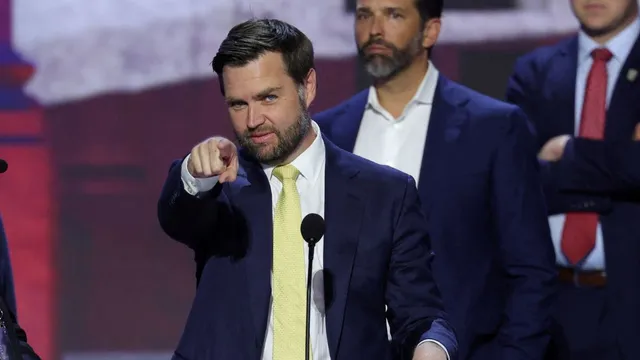- By Aditya Jha
- Sun, 13 Oct 2024 11:02 AM (IST)
- Source:JND
JD Vance, Republican vice presidential candidate, in an interview expressed his views on spirituality and mentioned how bad he feels to take his wife, Usha, a Hindu, to church. In an interview with the New York Times, Vance said that though her wife supported him in his spiritual journey, it has impacted her life too.
Vance clarified his views on the range of topics, including the intention behind the “Cat Lady” remark aimed at Kamala Harris, the ban on gender-affirming care, Trump’s 2020 loss, immigration, and many more. Vance also discussed his journey to Catholicism.
ALSO READ: US Imposes Sanctions On Global Firms For 'Illegally' Carrying Iranian Oil, Indian Company Affected
“She thought that they were good for me, in a sort of good-for-your-soul kind of way,” Vance said. "I don’t think I would have ever done it without her support, because I felt kind of bad about it, right? I feel terrible for my wife because we go to church almost every Sunday, unless we’re on the road,” the Ohio senator added.
Vance said that it was between 2017 and 2019 when his spiritual journey started, as he tasted success in both personal and professional lives. “So, thinking about the working-class family that I’d grown up in, I had a lot more money than I ever thought I would have,” Vance said. “I had my own venture capital firm, and there was this weird way where I felt like I had succeeded at climbing the ladder of meritocracy, but I had also found the values of the meritocracy, frankly, deeply wanting and deeply lacking,” he added.
During the election campaign, Vance has several times mentioned how his Indian-American wife Usha motivated him to push himself and prove his naysayers wrong.
JD Vance, however, again refused to acknowledge that Donald Trump lost to Joe Biden in the 2020 elections. He stated that he has no reason to think about the past and is fully focused on the future. “There’s an obsession here with focusing on 2020; I’m much more worried about what happened after 2020, which is a wide-open border and groceries that are unaffordable,” Vance said.

